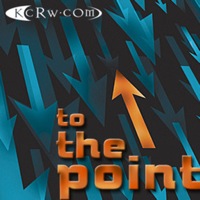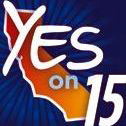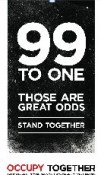HOW DO WE OCCUPY THE GAP?
Written on February 1st, 2012HOW DO WE OCCUPY THE GAP?
SPECIAL: Terrence fill in hosts on KCRW
Written on July 27th, 2011 |
Aired 07/25/11
Terrence fills in on the air for Warren Olney - "To the Point" on 89.9 KCRW Santa Monica and KCRW.com
As the markets and the public look on nervously, the clock continues to tick on negotiations to raise the federal debt ceiling. As leaders from both parties develop separate plans, one of the contested issues is the length of any extension. President Obama and the Democrats want to put the issue to rest till after the 2012 election, while the Republicans want to keep the government on a shorter leash. Also, more details on the Oslo shooter's mentality, and wedding bells ring in gay Manhattan.
Q&A: JOHN NICHOLS, Author – Jews for Buchanan
Written on March 22nd, 2011 |
Aired 03/20/11
There are the repercussions of the Republican electoral victories in last fall's elections - not just in Washington but in statehouses across the country. Though they well know that they were swept into office due to unemployment and a weak economic recovery on the one hand, and voter ignorance and lack of memory on the other, the GOP in DC is acting like they have a mandate for gutting Planned Parenthood, Public Radio and Television, and the EPA. Even worse, in the states, they are seizing on budget shortfalls to try to crush public employee unions.
JOHN NICHOLS is a Washington correspondent for The Nation and associate editor of The Capital TImes in Madison, Wisconsin. He is the author of Jews for Buchanan, and co-author with Robert McChesney of Our Media Not Theirs: The Democratic Struggle Against Corporate Media.
Q&A: GRANT DAVIS-DENNY, Attorney
Written on May 18th, 2010 |
Aired 05/16/10
I'll be joined by GRANT DAVIS DENNY, a knowledgeable expert and advocate for public financing of elections. Among other things, we'll talk about the recent Supreme Court ruling in Citizens United vs FEC and Prop 15, a clean money pilot program on the California ballot June 8th.
Q&A: GERALD CELENTE – The Trends Research Institute
Written on January 12th, 2009
Aired 01/06/09
GERALD CELENTE of The Trends Research Institute publishes TRENDS JOURNAL. A New Yorker, who calls himself a political agnostic, Celente gives everybody hell. I first booked him in January 05 and listener response has led me to make this an annual show.
CELENTE accurately forecast the Iraqi War quagmire, the last two recessions, the Dot-Com meltdown, and the 1987 world stock market crash. As far back as 1993 he predicted that a new Crusades would be raging at the dawn of the new millennium.
Excerpt from TOP TRENDS OF 2009 by Trends Research
THE YEAR THAT WAS
We described last year's "Year that Was" as ending with "an economic bang and a political thud." By contrast, 2008 goes out with a spectacular display of political fireworks and an economic implosion unlike anything experienced before.
History was made. The racial barrier came down. A man of black & white blood, modest means and scant experience was elected to rescue a great and foundering nation. A young, charismatic president was replacing a Commander in Chief who had long since worn out his welcome.
In 2000, George W. Bush assumed the presidency following an election replete with doubt and irregularities. A troubled first year abruptly gave way to a 90 percent approval rating following the trauma of 9/11. Playing his Commander in Chief trump card, he declared a War on Terror and war on Iraq.
In 2004, with the Iraq War going badly but the economy booming - especially the real estate market - he remained popular enough to squeak out a second term. In 2006, with the costs of war and casualties mounting, a Democratic Congress was voted in with a mandate to end the Iraq War. Instead they kept funding it.
By 2007, with America still bogged down in war, the real estate bubble bursting, a credit crisis erupting, and the subprime lending market collapsing, George Bush's popularity went into free fall. No longer confined to disgruntled Democrats, Bush-bashing became a bipartisan pastime.
Most will remember the economy as the 2008 Election hot button issue. In reality, it replaced the Iraq War only when the news of failing banks, bustedbrokerages, government bailouts and rescue plans preoccupied the press.
But it was candidate Barack Obama's early stand against the Iraq War - and his promise to end it - that separated him from the favorites of both parties seeking the presidency. In early 2008, none of the candidates in the run for the White House had an approval rating above 50 percent. Going into the Iowa Primary, Hillary Clinton was leading in the national polls while Obama's campaign was slowly gaining momentum. It wasn't until talk show host Oprah Winfrey jumped into the ring that it kicked into high gear.
THE PRESIDENTIAL REALITY SHOW
With the undisputed Queen of TV in his corner, the Obama campaign suddenly transformed into a flawlessly packaged Oprah production. Whether a stadium spectacle or a small town meeting, every event was staged to perfection.Was the celebrity witchcraft that endears Oprah to her millions of fans directed toward political stagecraft?
As if by magic, Obama, an adequate public speaker, became the master of the Teleprompter; so skillful - and with cameras so artfully placed - that the illusion of spontaneity was created. Pacing the stage, confident of his words, his cadenced oratory gave him a messianic quality. "Yes we can!" preached Obama. "Yes we can!" echoed his mesmerized political congregation.
As the economy worsened and the Iraq War was pushed into the background, Obama's focused message of change and his tightly-scripted performance made him a leading contender in The Presidential Reality Show.
Meanwhile, his main challenger, Hillary Clinton was repeatedly discrediting herself by playing the race card, and clumsily exaggerating her foreign policy
achievements with such claims as having dodged bullets in Bosnia and negotiating the peace in Ireland.
In opposition, the Republicans ran the uncharismatic and aging John McCain, inextricably tied to eight years of the Bush administration, an insurmountable obstacle. The President, posting near record low approval ratings, was so universally derided and despised that McCain saw Bush as an unconditional liability, banning him from the campaign trail.
The combination of an economic meltdown, Mc- Cain's acknowledged lack of economic awareness ... and puzzling choice of running mate made possible the impossible: a black, practically unknown challenger swept into power.

